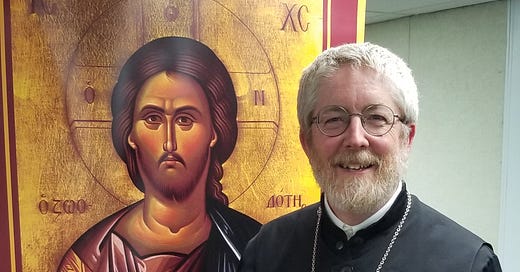A friend recently sent me David French’s excellent essay “Does Ideology Shape Community, or Community Shape Ideology?” which I would encourage you to read.
Below you will find my response to French’s essay.
Thanks for this. I read it earlier and found it insightful. What I might change is that our ideology is shaped not merely by one community but by the interaction—the clash really—of the multiple communities of which we are a member.
After 13 years here in Mad City, I have come (begrudgingly) to accept that I will rarely get the kind of questions that come up at say the Acton Institute or from my right-leaning libertarian friends in other parts of the country. As for conversations about the wisdom of classical, Christian moral theology, or Orthodox asceticism, forget about it!
Several months ago a Catholic deacon “called me out” (in a friendly way) on Facebook. He said I had been in Madison too long and begun to sound like a liberal. Maybe. My core values haven't changed (as far as I can tell) but the things that have come to occupy my attention (at least publicly) certainly have.
Now I've got to answer questions that emerge from the Left (and often, the hard or progressive Left at that) rather than the Right.
Whether or not I have grown in the humility French calls for, I will leave it to others to determine. What I can say, is that learning to answer left-wing questions in a way that hopefully moves them close to Christ and the Gospel is not without its challenges and even occasional (though rare) satisfactions.
But whether I am politically a man of the Left, of the Right, or (my preferred label) Libertarian, is ultimately of no lasting interest or value to me. Even my preferred label wasn't something I chose for myself; it’s where I have found myself as people around me have shifted about what counts for Left or Right.
In the end, though we are Christians, first, last, and only. It is the Orthodox Church as fundamentally a sacramental and liturgical community that shapes us. We are not Protestants or Evangelicals who strip the Gospel of mystery and reduce it to a rather thin moral philosophy. Nor are we Roman Catholics who while they embrace a similar sacramental and liturgical life as do we, do so in a manner every bit as thin as what we see in Protestant and Evangelical moralism.
As an aside, I take a certain fascination in listening to conservative and liberal Protestants argue about who is more faithful to the moral teachings of the Gospel. They disagree about same-sex marriage and abortion but do agree that answers to these questions are central to the Gospel. Less fascinating, and infinitely more worrying, is how the same tribal moralism has infected Orthodox Christians in America who now argue as passionately about these issues as our Protestant brethren.
Anyway, for us as Orthodox Christian, the Carthusian motto is enough: Stat crux dum volvitur orbis, “The Cross is steady while the world is turning.” Everything we do in the Orthodox Church brings us back to this great truth that all but a few Catholics (and even fewer Protestants) have ever known (and fewer still remember).
Thanks again for the essay!



